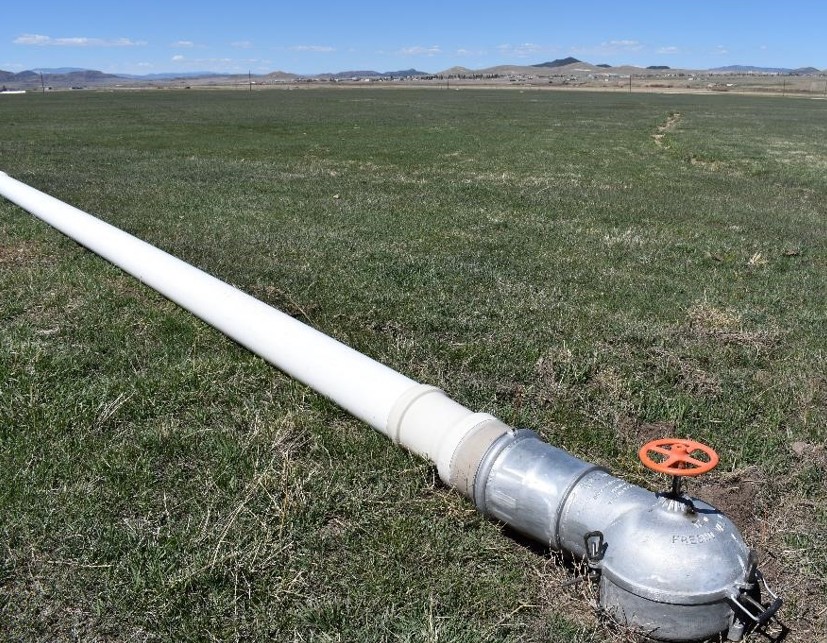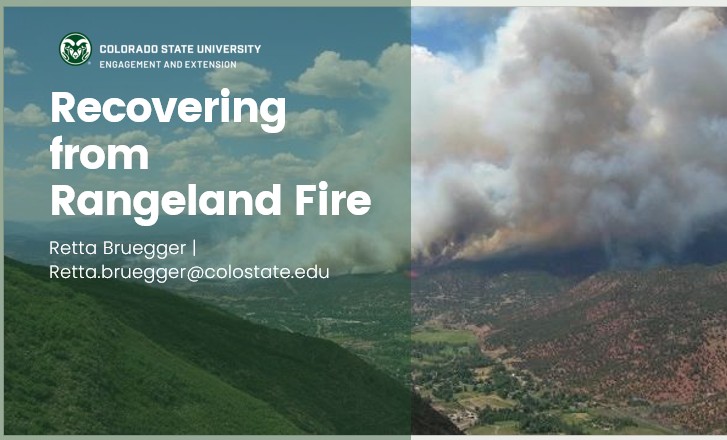Upcoming Webinar on
Irrigation Scheduling
February 12, 2026

Presenter: Maya ter Kuile Miller, Consulting Agronomist in the San Luis Valley, and instructor at Adams State University.
The webinar will cover:
• Principles of irrigation scheduling
• What to know about the water needs of your crop or forage
• Soil and water terminology, including evapotranspiration (ET) and Management Allowed Deficit (MAD)
• Using CoAgMet and other weather data to understand your crop’s daily Evapotranspiration (ET) rate
• Different ways to determine soil moisture – from simple to automated
• Putting it all together – How to actually schedule irrigations!
Register for the webinar in advance at: https://us02web.zoom.us/meeting/register/V4kC7B02RHCiEZCPuTpEmg
View the Recorded Webinar:
Recovering from Rangeland Fire
Presenter: Retta Bruegger, CSU Extension Rangeland Specialist
Recorded: October 21, 2025

View the recorded WEBINAR on
CSU Water Quality Results from Irrigated Mountain Meadow Monitoring
Recorded February 20, 2025
Presenters: A.J. Brown, CSU Ag Water Quality Program Data Scientist,
and Greg Peterson, CAWA
Topics:
- Why the study has been conducted.
- The timing of irrigation, fertilization, hay production and grazing.
- Differences in nitrogen and phosphorus levels in the inflows and outflows (runoff).
- Differences in sediment (total suspended solids) loads coming into and leaving fields.
- The effects of manure and commercial fertilizer application on nutrients in outflows.
Recorded Webinar URL: https://youtu.be/QFFcA2mM0Qo
View the Highlights of the webinar